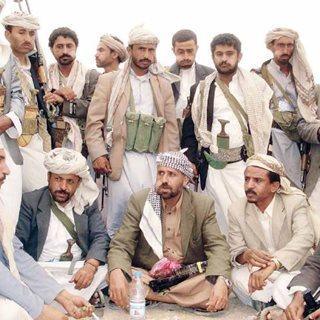Yemen’s chaos is a threat to the Arab world
Salman Aldossary/Asharq Al Awsat
Monday, 9 Feb, 2015
The Houthi movement succeeded in misleading the entire Yemeni political establishment for about 141 days. They misled outgoing president Abd Rabbuh Mansur Hadi (who is currently still under house arrest). They misled the UN assistant secretary-general and special adviser on Yemen, Jamal Benomar. They also signed a pact with Hadi, the inappropriately named “peace and partnership agreement.” And with that, everyone thought this “partnership” with the upper echelons of power in the country represented the upper limit of Houthi ambition. But these dupes would all soon discover the true extent of the Houthi deception—that this agreement with Hadi was but the first nail in the coffin of the Yemeni state. But then of course came the final reveal, with the Houthis openly pursuing a coup in the country and eventually making a unilateral constitutional declaration that effectively gave them, and them alone, complete political control of the country.
The danger posed by the current situation in Yemen is not the responsibility of Saudi Arabia or the Gulf Cooperation Council (GCC) alone; it is the responsibility of the international community as a whole, which will sooner or later get burned by the fires spreading outwards from Sana’a. Now that alarm bells are ringing in the capitals of the world’s major political powers, we need a definitive, unified Arab stance on the Houthi takeover. This is certainly not the time for internal bickering, as some Arab countries are doing right now; once the international community sees a clear Arab response it will step up its own efforts to ostracize the Houthis internationally, and upend their heavy-handed approach to politics.
In any case the foreign ministers of the GCC’s member states are due to meet next Saturday to discuss the latest developments in the crisis. Based on available information, the ministers will likely explore future responses to the crisis, whether these take the form of political, economic, or even security measures. They will also be working out a timetable to be presented to the Arab League which will deal with deciding on a clear stance toward the coup and a strong response that will support the legitimate political powers in the country and further increase the Houthis’ isolation—instead of the usual inappropriate and spineless methods adopted by some Arab countries when dealing with major developments.
Now, if the worst happens and extremist groups start fighting for the scraps from a decimated Libyan table, the countries of the Gulf should not think themselves safe due to their geographical location, nicely tucked away in the Arabian Peninsula and away from the Arab Maghreb, for whom the situation is the same when it comes to Yemen. Conversely, the Arabs of the Maghreb should not be lulled into a false sense of security, and think of themselves as far away from this country which has provided such fertile ground for terrorists and terrorism. Indeed, it is this very point that has made the current crisis in Yemen such a pressing issue for the UN Security Council: many of the major terrorist operations that have recently taken place have their origins in Yemen. And so it would be the height of naïveté to believe that being thousands of miles away from the country will help anyone avoid the scourge of terrorism and those who practice it. Have they not learned the lessons from Iraq and Syria, where terrorism incubated for years and is now spreading like wildfire across the globe?
Here it is perhaps worth noting how the Saudi and wider Gulf response to the crisis is not, as some contend, tinged with a sectarian bent. After all, Sunni Saudi Arabia and the other Gulf countries dealt for years with the ruling Shi’ite Zaydis during the Mutawakkilite Kingdom—from the Imamate all the way up to the modern Yemeni republic. Moreover, half of the Yemeni budget is bankrolled by Gulf countries. As for Gulf opposition to the Houthi coup, it is a purely political, and inescapable, position. After all, Iran is clearly now attempting to impose its own political agenda onto the region, among its more general attempts to interfere in the internal affairs of Arab states.
We have a saying in the Arab world, “the worst disaster is the one that brings laughter.” In light of this let us remind ourselves of some of the recent comments made by UN special envoy Benomar, who came all the way from one end of the Arab world (the Maghreb) to solve a problem in the other (the Mashreq). He told journalists on Sunday he was “happy to announce to you that all political parties have agreed to return to table for talks” in order to solve Yemen’s crisis. Can you imagine? The UN’s special envoy, “happy” that the Houthis have agreed to resume dialogue when they are the ones who have, since the beginning, carried out acts of violence, looted, raided, and forced their own reality on the ground by force of arms, only then agreeing to talk, and subsequently reneging on every agreed-upon issue while attempting once again to force the reality on the ground using violence. This process was basically repeated until, eventually, the Houthis spread their influence throughout the country and forced a coup d’état—all the while taking part in “talks” and engaging in “dialogue.”
As for the UN envoy, he is of course “very happy” and still believes in this latest round of “talks” with the Houthis—which he has labeled “a positive step.”























